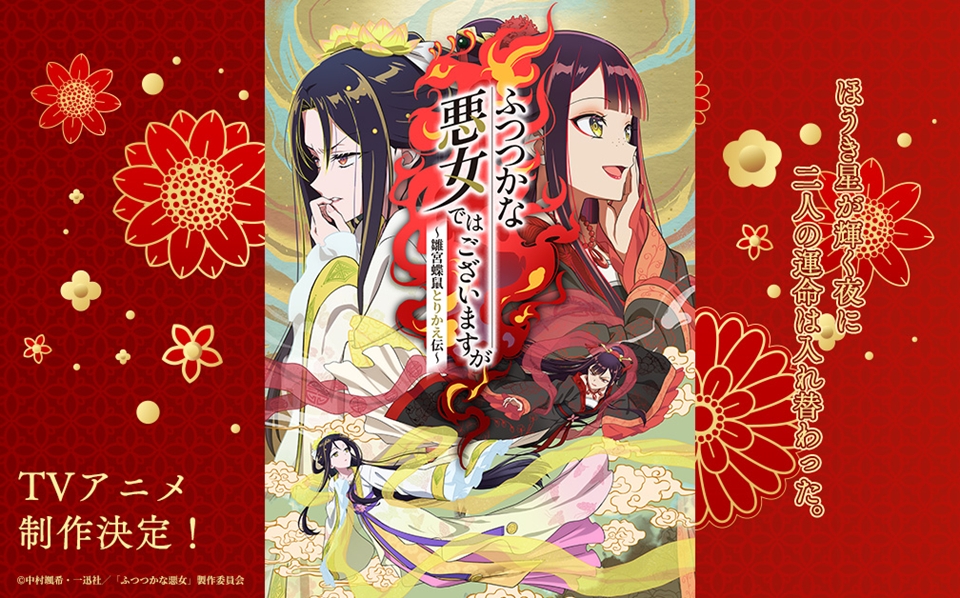Every day at Gingarou Hotel runs like clockwork. First the acting manager, Yachiyo, leads her staff in a shift meeting. Then they inspect the rooms, clean the hallways and cook delicious meals. Finally they retreat to rest and recharge. Everything you’d expect, and more, from a luxury hotel in Tokyo’s Ginza district. There’s only one problem: There are no guests, because all the humans either died or left Earth. Yachiyo and her colleagues are robots. They clock in and out each day hoping against hope that their long lives of service might add up to something. Then their dreams are fulfilled by something they never expected: aliens. There’s a lot in Apocalypse Hotel that modern viewers will recognize. The disease that extinguishes humanity at the start of the series is like an amped-up version of Covid-19. The future version of Ginza, crumbling and overgrown, reminds me of near-future New York from the Will Smith film I Am Legend . There’s even a sandworm wandering the Ginza wastes, which could be a callback to Dune ’s sandworms or even to the Ohmu in Nausicaa of the Valley of the Wind . These aren’t cliches necessarily. It’s more that people have spent decades in culture obsessing over what the world might look like after civilization collapsed. Whether the world became too hot or too cold ; whether it had too much water or not enough . How might we change, be changed, under these extreme conditions? Would we recognize ourselves? RELATED: What We Inherit: The Tangled Themes of One Piece's Fish-Man Island These visions of the future all have one thing in common: the belief that humans will remain the protagonists of history. It’s easy to understand why. People have done so much to reshape the planet for good and ill. Our actions have eliminated many species and redistributed others. Carbon dioxide emissions have spiked world temperatures , melting the glaciers. Some call this new era the anthropocene : the age of humans. A hundred thousand years of ecological dominance have taught us that we are the greatest and most important species on earth. The stories we tell each other reaffirm this belief at every opportunity. Yet our actions have created an environment that will be deadly for humans. Rising temperatures , wildfires and diseases spread by animals all threaten our lives. So we imagine worlds in which most of us die as an escape valve for our present. Even these visions, though, tend to be human-centric. There will always be a Will Smith in New York. Lauren Olamina building a community in California . What might happen, though, if you cut out humans entirely from these narratives? Would we still want to know what happened next? In 2019, the author Jeff Vandermeer published a novel called Dead Astronauts . Set in the world of his earlier novel, Borne , it follows three agents as they seek to avert the ecological devastation of the planet at the hands of the Company. For its first third Vandermeer writes to our expectations. Then he confounds them. The agents are scattered, changed. They are no longer human. Yet some remnant, detached from human ego, continues to struggle and fight. In the end it is not humanity but nature itself which asserts its right to exist in the face of global destruction. RELATED: ZENSHU Shows How Creation Takes on a Life of its Own Vandermeer foreshadowed this turn in his earlier work. Borne ends with the heroine passing the baton to intelligent bioengineered foxes. The Area X series, perhaps his most popular creation, reimagined modern Florida as a land overtaken by alien life. There is no place for humanity as it exists today in these worlds. They must transform, or be transformed, by the changing paradigm. These books are stories of the anthropocene. Yet they also are an attempt to imagine the post-anthropocene. Dead Astronauts , in particular, depicts a world without narrators, free from the principle of linear time and the tyranny of objectivity. Everything mixed in a big bowl of primordial soup. It’s a challenging read but that is on purpose. Perceiving the world as an animal might, not a human, should be challenging. Apocalypse Hotel is not quite a story of the post-anthropocene. Unlike Dead Astronauts , its characters are still governed by personhood and linear time. Yachiyo spends her time thinking about humans: Where will they go? Will they ever come back? Even the family of alien tanuki that become her most loyal guests initially take the form of humans after spending many days learning their ways. Yet these characters aren’t human, not really. Yachiyo must be plugged in once in a while or she’ll run out of power. The hotel’s doorman, who considers opening the door for guests to be the highlight of his life, overheats and collapses whenever he tries. The alien tanuki leave poop around the hotel in order to mark their territory. These traits all distinguish them from the humans they are pretending to be. No matter how hard they try to follow in our footsteps, they will always be just a bit different. RELATED: How Far Has Science Progressed in Dr. STONE? Then there’s the alien who first visits the Gingarou Hotel. It exhibits no trace of humanity whatsoever. The alien vomits strange purple goo into ponds and swimming pools. When offered a shower cap, it turns its head into a shower cap. When offered food, it removes its eye, which grows long legs that absorb the food. The only remotely human thing about it is its luggage. This alien is threatening because its actions do not conform to human behavior. Yet when the local Environment Checker Robot offers to exterminate the alien by turning into a laser gun, Yachiyo refuses. Sure, the alien might be different from what she is used to. But what’s wrong with being different? Shouldn’t it be on Yachiyo to find common ground? Yachiyo and the alien never manage to become friends, but they are never enemies either. The two of them simply co-exist. Here on this planet, we still have a chance to decide that future, no matter how late in the game it might be. But in the future of Apocalypse Hotel , it is up to Yachiyo and her guests, not us, to decide what that means.


